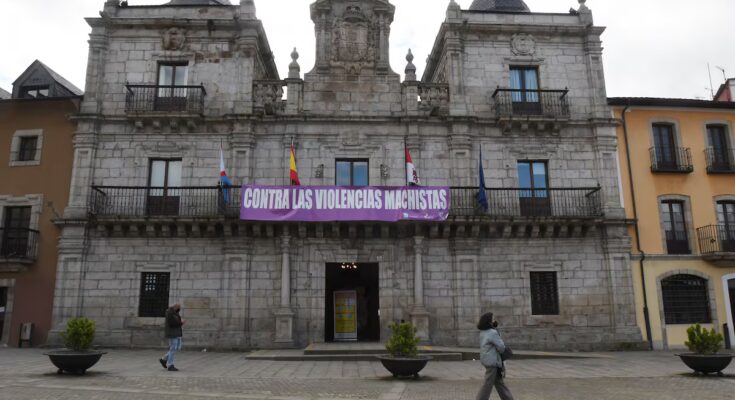The city council of Ponferrada, led by mayor Marco Morala (PP supported by Vox and the Coalition for Bierzo), refuses to respect a judicial resolution ordering the paralysis of the city’s heating network of 63,000 inhabitants. The Administrative Litigation Court number 2 of the municipality of Bercia has ordered the “provisional execution” of a sentence which requests the paralysis of the operation of a biomass plant that supplies heating to the municipality. The councilor maintains that the sentence is not final, despite calls for immediate action, in a process that since 2017 has pitted the inhabitants of the Compostilla neighborhood against the Municipality and the Junta de Castilla y León. The court thus accepts the request of the Bierzo Aire Libre collective and the neighborhood association, who requested this stop “basing it on total nullity, on the danger to health and the environment deriving from the lack of an overall environmental assessment and the lack of authorization for the distribution network”. The municipality claims that residents are affected, but the judge claims that the corporation and the council have alternatives for supply.
The fight in the courts began in 2017, explains Víctor Álvarez, lawyer for both plaintiff groups. The lawyer explains that the first licenses for the biomass park were then granted in coordination between the Municipality and Somacyl, an independent public company, in the Compostilla district, «a district disconnected from Ponferrada, with former workers of the thermal power plant, where it was built on land where the Youth Park was planned». The plant was located very close to homes and in 2021, after the complainant filed a complaint, the Superior Court of Justice of Castilla y León (TSJCyL) ruled that the biomass plant was illegal “for formal but significant reasons”. “The environmental permit was never granted, it was treated with a work permit. The neighbors appealed and it was canceled due to poor public information: it was hidden, there was no public treatment,” he adds.
Álvarez regrets that the City Council is driven by “every rush to spend European funds” and that, after that first court ruling, the leaders tried to legalize the heat network “with partial environmental licenses, which we understood to be illegal and behind the backs of the neighbors”. They also appealed and last July the court ruled in favor once again, canceling the biomass plant “because it did not comply with environmental guarantees and the processes were illegal”.
The Consistory and Somacyl elevated it to TSJCyL and Bierzo Aire Libre and the neighborhood platform submitted a request for provisional execution to the Administrative Litigation Court “so as not to wait months for the TSJ to respond”. When the stop was accepted, the mayor’s refusal to comply with the sentence “is a legal error, it is an immediate ordinance even if it is not firm, they had all the time, but they postponed decisions that were known since July”.
Councilor Marco Morala (PP) assured that this resolution “is a task”, guaranteed that they will appeal and that the municipal legal services are studying it to see how to act. The ruling “annuls the licenses granted in 2021” and defined the case as “a purely legal and procedural issue, the infrastructure was not badly done, the procedure for granting these licenses was”. Morala argued that the biomass heat network “is good for Ponferrada in everything, for the environment, for the economy and for energy saving” because the old gas or diesel boilers have been removed, and added that there are many public buildings that have been adapted to the new heating system and that this “task” would be due to the fact that there would be no way to heat them.
The ruling, to which EL PAÍS had access, presupposes that “the damage complained of by the Municipality is true, serious and immediate”, although it denies that it is “impossible to repair” or generates “irreversible situations”, since the damage is “of extreme social gravity” but “technically repairable” because the Municipality and Somacyl “have the obligation to provide alternative means to guarantee the continuity of the service with other means.
The damage is essentially economic and organisational”. More serious, however, may be the environmental impact deriving from having “the very existence of an industrial plant functioning without the necessary environmental guarantees”. “The purpose of environmental prevention legislation is preventative; If a structure is allowed to operate without an overall assessment until the final ruling (which can take years), any environmental or health damage will have already occurred, making jurisdictional protection illusory,” the judge argues.
The judge’s ruling specifies that something already built, such as that plant, cannot be “paralyzed”, but “provisional execution” can be dictated by focusing on “activities in progress, not on accomplished facts, whose possible overturning (demolition) is typical of the definitive execution”. Analyzing these keys to understanding the environmental proceedings not completed, the magistrate believes that “the public interest (correct environmental assessment) has been violated” and that “the general interest in the protection of environmental legality and public health, declared null and void, must prevail over the interest (even public) in the continuity of a service which, although essential, can be guaranteed with alternative means that the Administration has the duty to implement, even if this involves a cost”.



